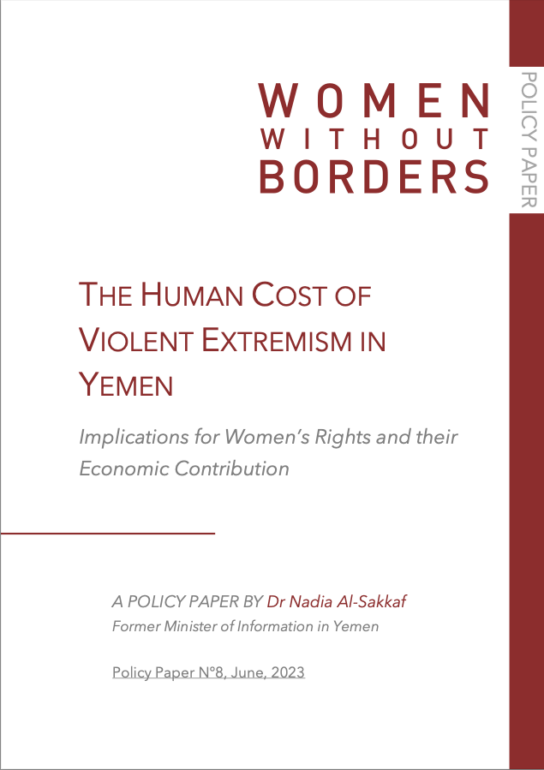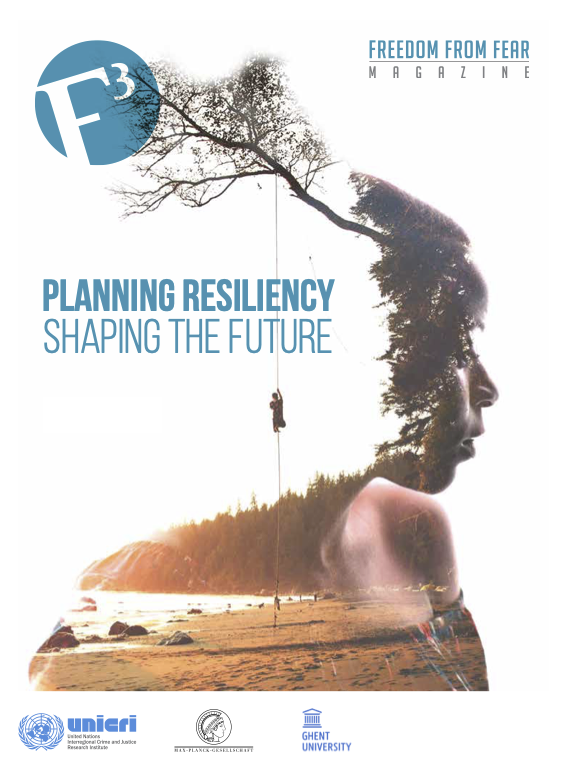In Policy Paper N°8, Yemen’s former Minister of Information Nadia Al-Sakkaf discusses the human cost of war and violent extremism in Yemen amidst the ongoing conflict and humanitarian crisis. She sheds light on the dire economic and political situations in the country, particularly as they pertain to women’s rights, or lack thereof. With nearly ten years since the Houthis took control and war has ravaged on, women bear the brunt of the consequences, from a lack of economic opportunities and freedom of movement to an increase in gender-based violence. To move the needle and ensure sustainable peace in the region, Al-Sakkaf urges the international community to invest in the economic empowerment of women and outlines concrete policy recommendations that should be considered for positive, lasting change to occur.
The ongoing conflict, combined with a rise of extremist groupings, has led to a significant deterioration in Yemen’s economic and social conditions. This has curtailed Yemeni women’s basic civil rights and hindered their ability to contribute economically. Similarly, the deterioration in Yemen’s economic and social conditions is a common factor motivating young men as well as some women to join armed militias on all fronts. Even as political discussions between rivals take place at the highest levels, it is important to note that the absence of war does not necessarily mean peace. This necessitates a deeper understanding of the extent to which violent extremism is prevalent in the Yemeni society, and how it will become an obstacle to achieving true and sustainable peace, and the prosperity of Yemeni men and women further down the line.
History has shown that when extremist groups around the world rise to power, women’s rights and their contribution to public life are significantly reduced. Examples include the Taliban in Afghanistan, the Islamic Revolutionary Guards Corps (IRGC) in Iran, Boko Haram in northern Nigeria, and now the Houthis in Yemen.
Read the policy paper in full here.



